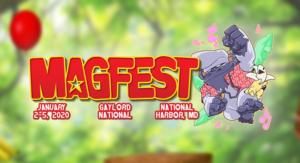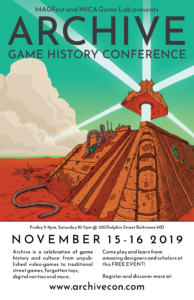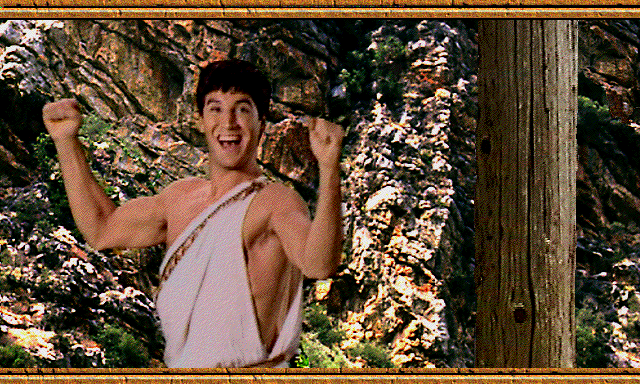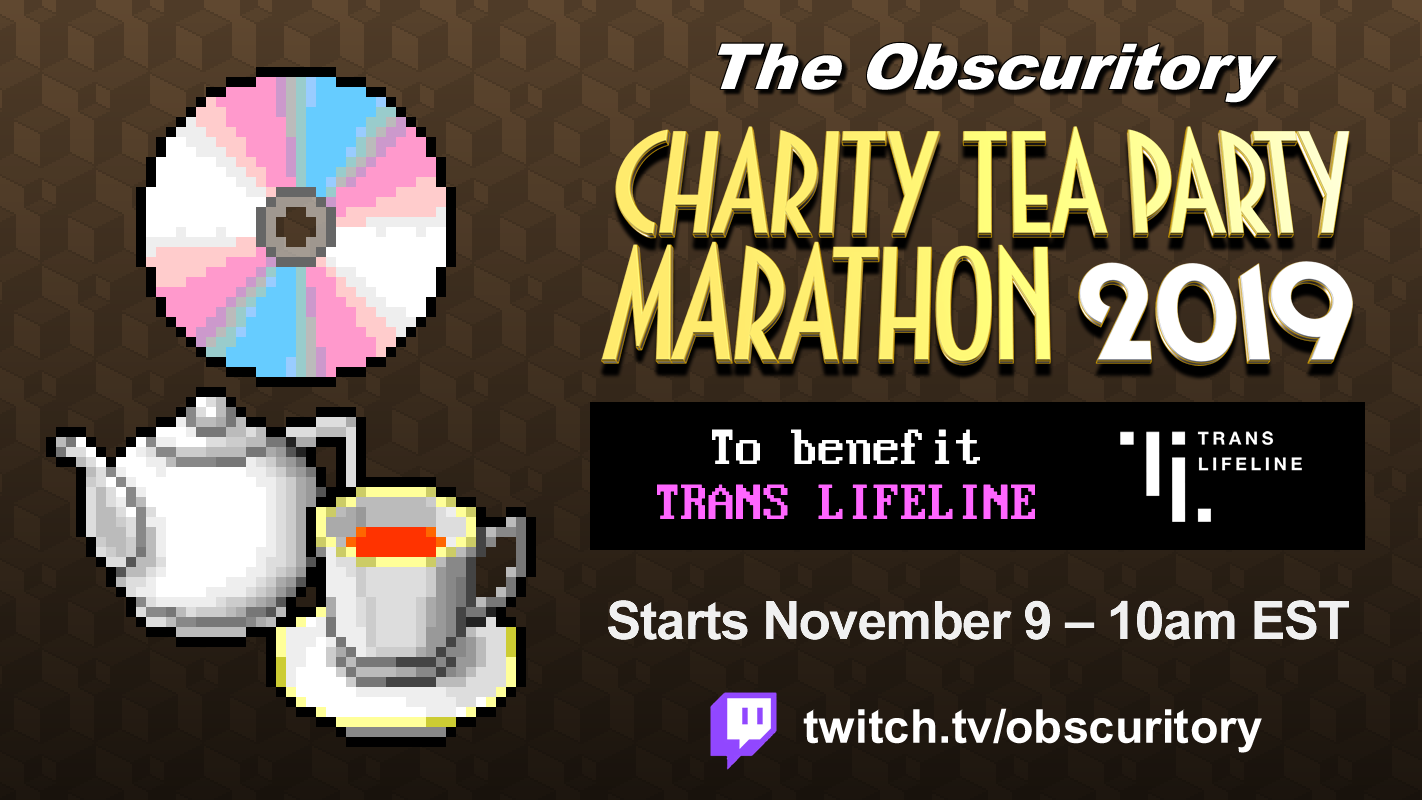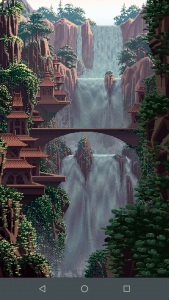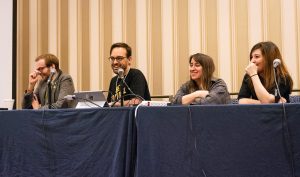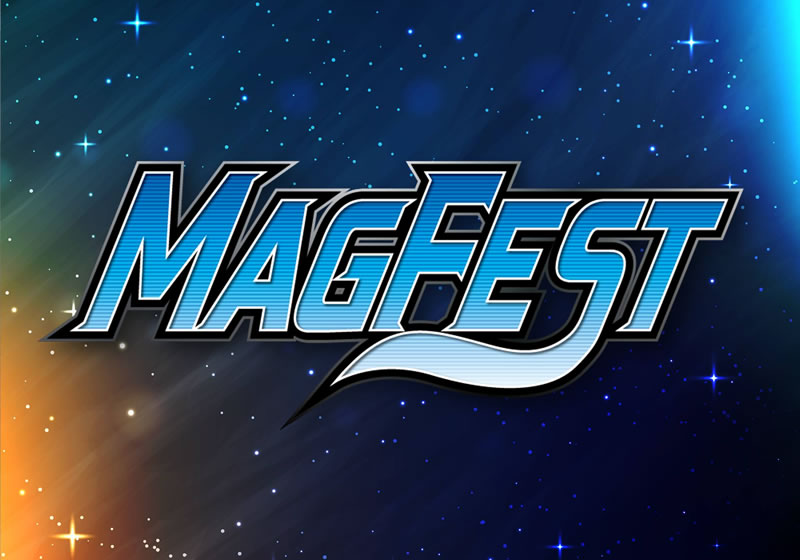With the world on pause 
For reasons that are hopefully understandable, The Obscuritory hasn’t been active this month. This is the first time I haven’t posted on the blog during a calendar month since 2015, so let’s talk for a little bit.
The coronavirus outbreak has been stressful, and as I’ve had to pour more energy into my job, I’ve been focusing less on anything else that feels like work. For the last few weeks, I’ve been taking a break by helping a friend with a game development project, which has been a new fun set of challenges! I’ve also been getting back into Minecraft after eight years away from the game, because there’s something soothing about chipping away at a giant tunnel, like doing a coloring book. But in general, it’s been difficult to focus, and The Obscuritory has taken a necessary break while I take care of myself and regroup.
I’m eager to get back into it again, but things will probably be a little slower for a while, even slower than usual. I had plans for long-term research projects this year, and I’ll probably need to put those on the backburner for a while too. But I want to help make things less painful, and this blog is a minor thing I can do.
(I swear, there’s this dark historical adventure game I’ve been meaning to play for over a decade, Azrael’s Tear by Intelligent Games, and I finally started on it right before the United States went into emergency mode. It’s tough to get excited about dark, moody games right now, so I’ve put that one aside again for the time being. Look forward to that in another decade, I guess?)
Given that everyone is cooped up at home for a while, I’m going to try streaming unusual old games during this isolation period, just for the sake of having a positive social space. I know I could certainly use that too, and I already have a webcam and microphone for work, so why not? I’ll update on here with more information once I get that going, but please check on Tumblr and Twitch as well if you’re already following there.
Seriously, please be well, and be kind to yourself. We’ll get through this by looking out for each other and treating ourselves well. Nobody is just the sum of their productivity or their work or their output. Rest is good. And bread. Bread is good too.
UPDATE: This is short notice, but I’ll be streaming the 1992 choose-your-own-adventure story Beyond the Wall of Stars today at 5pm Eastern! I should probably make a dedicated post for a streaming schedule, but I’m adding this here for now. https://www.twitch.tv/obscuritory

